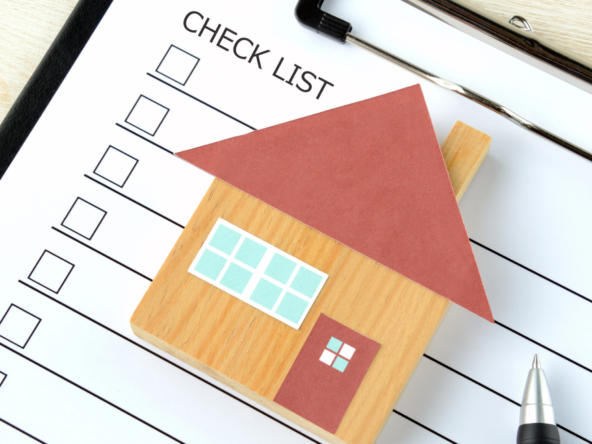Property taxes in Eagle Idaho are a central financial factor for anyone buying or selling a home. Because these taxes affect carrying costs, buyer affordability, and perceptions of value, savvy buyers and sellers both need to understand how the system works — and how to leverage it.
How Are Property Taxes Assessed in Eagle / Ada County?
In Eagle, property taxes are managed by the Ada County Assessor’s Office (for properties within city limits) and by relevant taxing districts.
Here’s a simplified breakdown of the assessment process in Idaho (and Eagle):
-
Market Value Estimate (January 1 basis). The assessor estimates the “fair market value” of your property (land + improvements).
-
Apply exemptions / deductions. Idaho allows a homestead exemption (for primary residences) that reduces assessed (taxable) value.
-
Calculate levy rates. Each parcel lies in multiple taxing districts (city, school, fire, library, etc.). Each district sets a budget and divides that by total taxable base to get a levy (mill) rate.
-
Multiply taxable value × levy rate(s). The sum of all district taxes yields your total property tax bill.
-
Appeals process if over-assessed. Homeowners can challenge their assessment via the county appeal or board of equalization.
For example, Ada County provides a breakdown: for a $200,000 taxable value, the breakdown might include county, school, city, and special-district levies.
What Are Typical Property Tax Rates and Bills in Eagle?
To understand real impacts, let’s look at current effective rates and how much homeowners pay in Eagle:
-
The median effective property tax rate in Eagle, Ada County is about 0.45 %.
-
That means if your home is assessed (after exemptions) at $500,000, your annual tax might be roughly $2,250.
-
Statewide, Idaho’s effective rate on owner-occupied homes averages around 0.47 %.
-
Over time, Idaho’s urban average property tax rate has ranged between 0.7 % to 1.3 % (before exemptions), depending on area and year.
-
Note: In parts of Eagle that lie in Gem County, some data shows lower effective rates (around 0.24–0.27 %).
So while the “sticker rate” might seem moderate, exemptions heavily influence what owners actually pay.
For Homebuyers — Costs, Calculations & Strategic Decisions
When a buyer considers a home in Eagle, property taxes play into both upfront costs and ongoing affordability. Some implications:
-
Monthly payments & mortgage qualification. Lenders often include an escrow line item for property taxes. A higher tax burden may raise your monthly housing expense (PITI = Principal + Interest + Taxes + Insurance).
-
Comparing neighborhoods. Two similar homes in different school districts or fire districts may have different total tax bills due to differing levies.
-
Impact on negotiating price. Buyers may factor in expected yearly taxes when deciding offer amounts or whether to ask sellers to credit a portion at closing.
-
Future tax increases. Idaho allows taxing districts generally to raise revenue by no more than 3 % per year (plus growth/new construction) unless voters approve higher increases.
-
Exemption eligibility. Ensuring you claim the homestead exemption (and possibly other reduction programs) is critical from day one.
-
Due dates & planning. Tax bills are mailed in November, with first half due December 20 and second half due June 20 (unless accelerated).
Because property taxes are recurring, buyers must factor them into long-term affordability, not just the down payment.
For Sellers — Valuation, Incentive & Disclosure Effects
Sellers in Eagle should also understand how taxes affect buyer psychology, pricing, and negotiations:
-
Perceived carrying cost. Buyers will evaluate not only mortgage payments but annual tax bills. A high tax burden can deter offers or reduce perceived value.
-
Negotiation point. Sellers sometimes offer to pay a portion of the first year’s taxes or adjust closing costs to offset buyers’ tax uncertainties.
-
Tax proration at closing. Typically, property taxes are prorated — the seller pays taxes up to the closing date; the buyer pays thereafter.
-
Assessment appeals before sale. If a property was recently overassessed, a seller may appeal and, if successful prior to sale, present a lower tax burden history to prospective buyers.
-
Comparative buyers’ mindset. In Eagle’s market, homes in subareas with lower effective taxes may command a premium all else equal.
In short, a seller who understands the tax landscape can better market and position their home.
Strategies & Tips to Manage Property Tax Impact
To reduce surprises and optimize outcomes, both buyers and sellers in Eagle should consider:
-
Request recent tax history and district levies. Before closing, examine past 3–5 years’ tax bills and levy breakdowns.
-
Check all taxing districts. A parcel might belong to additional service districts (e.g. ambulance, library, irrigation) that add to the levy.
-
Appeal over-assessments. If your assessed value seems out of line with comparable properties, file an appeal before deadlines.
-
Ensure you claim eligible exemptions. The homestead exemption is critical; also check for veteran, disabled, or income-based reductions.
-
Budget for increases. Even with limits, levy growth or new bond measures may raise your tax burden; build in a buffer.
-
Consult a local realtor (like Chris Budka). Real estate professionals familiar with Eagle know which neighborhoods have lighter or heavier tax burdens, and can help clients price or bid accordingly.
What This Means for the Eagle & Treasure Valley Market Outlook
Given Eagle’s growing popularity, rising home values, and evolving infrastructure needs, property taxes are likely to play an increasingly visible role in buyer decisions and seller strategies. Some market-level observations:
-
Neighborhoods with newer infrastructure or improved amenities may carry higher tax levies.
-
As the Eagle area attracts more development, taxing districts (schools, roads, public safety) may propose new bond measures or budget increases, which would raise levies.
-
Buyers relocating from out of state may not be used to Idaho’s exemption rules; advisors like Chris Budka can educate them.
-
In a competitive seller’s market, properties with lower tax burdens may edge out similar homes with heavier tax loads in the eyes of discerning buyers.
In other words: property taxes will increasingly differentiate which homes offer the most “net value.”
Frequently Asked Questions (FAQs)
1. How do I find out the exact property tax for a specific Eagle home?
Request the latest assessed value and levy schedule from the Ada County Assessor (or Gem County, where relevant). A realtor can often help retrieve this information.
2. Can a buyer back out because of an unexpectedly high tax bill?
It depends on contract terms, but typically yes — if the disclosed tax burden materially affects affordability. That’s why full disclosure from sellers is good practice.
3. When must I appeal an assessment in Eagle / Ada County?
Appeals usually must be filed soon after the assessment notice is mailed (by the first Monday in June). Check county deadlines and procedures.
4. Do new home improvements increase property taxes immediately?
Yes — improvements generally increase assessed value, which can trigger a higher tax. Buyers and sellers should assess impact before making or marketing upgrades.
5. Can senior or disabled homeowners get tax breaks in Eagle / Idaho?
Yes, Idaho has programs for reductions (e.g., circuit breaker, disability exemptions), depending on income, age, or status. Contact the county assessor’s office to check eligibility.
Bottomline
property taxes in Eagle Idaho are more than a line item — they influence affordability, buyer psychology, negotiation dynamics, and long-term ownership costs. In Eagle’s evolving real estate market, mastering the tax landscape is a differentiator. Whether you’re buying, selling, or holding, lean on local expertise like Chris Budka Real Estate to navigate exemptions, levy districts, appeals, and effective tax burdens. Informed clients make better decisions — and that’s always the goal.










